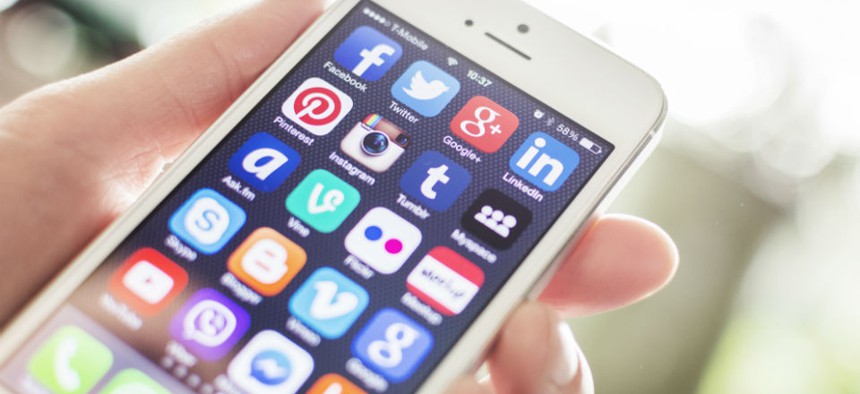
Twin Design / Shutterstock.com
The CIA Is Trying to Hack Your iPhone
New Snowden documents reveal a decade-long CIA push to break Apple’s encryption protections.
The CIA has secretly attempted for years to crack the security protections on a number of Apple products, including the iPhone and iPad, according to newly revealed documents from Edward Snowden.
CIA spies have been at work for nearly a decade to thwart the encryption standards on Apple's devices, the classified files published Tuesday by The Intercept show.
At an annual CIA conference known as "Jamboree" and dating back to 2006, contracted researchers have tried to devise strategies for how to break through the security baked into electronics built by Apple, Microsoft, and other U.S. technology companies. A prime goal has been to build so-called surveillance backdoors that would allow for government snooping without the knowledge of the company.
The documents detail efforts by researchers to exploit Xcode, Apple's popular app-developing software, so they could infect and extract private user data on devices that installed the "poisoned" version. "In other words, by manipulating Xcode, the spies could compromise the devices and private data of anyone with apps made by a poisoned developer—potentially millions of people," The Intercept reported.
Additionally, the Snowden documents suggest that a compromised Xcode could be manipulated to create a "remote backdoor" allowing covert access to the contents of an Apple product. The hijacked software could also be used to impersonate targeted app developers, route any iPhone or iPad iOS application data through a government "listening post," and disable key security protections.
It is not clear from the Snowden documents how successful these efforts to break Apple's encryption protocols have been.
The revelations come amid a public push by senior government officials to convince tech companies not to deploy "unbreakable" encryption technologies. President Obama, Attorney General Eric Holder, FBI Director James Comey, and others have warned in recent months that efforts by Apple and Google to create too-tough-to-crack encryption protocols on their mobile devices could stifle law-enforcement investigations and jeopardize national security.
But while other intelligence agencies have been vocal about their encryption concerns, the CIA has remained largely silent on the matter. Last week, CIA Director John Brennan ordered a sweeping reorganization of his agency, a shift that includes a major refocus on digital spying. Brennan has defended the change as vital for the CIA to continue fulfilling its mission, although some have expressed concern the spy agency may be neglecting its more traditional intelligence-gathering capabilities.
The new revelations come just a day after Apple regaled technophiles in Silicon Valley with a "special event" in which CEO Tim Cook demoed the new Apple Watch. The forthcoming Internet-connected wearable has drawn some intrigue from lawmakers and regulators in Washington over its use and storage of personal data, such as health biometrics.
Privacy groups and number of lawmakers, such as Democratic Sen. Ron Wyden, have warned that forcing U.S. tech companies to build backdoors into their products does untold economic damage to Silicon Valley and gives overseas competitors an easy attack line. Such vulnerabilities, they contend, also jeopardizes national security by giving countries like China and Russia an easier way to conduct cyberattacks and access U.S. data.
"I'm a strong believer in strong encryption," Obama said during an interview with Re/code last month during a White House-led summit held at Stanford University. "But I am sympathetic to law enforcement because I know the kind of pressure they're under to keep us safe. And it's not as black-and-white as it's sometimes portrayed."
Cook, who has pushed back strongly on government attempts to undermine encryption, spoke earlier at that same conference. In a brief speech, he laid out a forceful defense for digital privacy, likening it to a human right that can "make the difference between life and death."
(Image via Twin Design / Shutterstock.com)
NEXT STORY: The Newest Productivity Hack: Meditation







